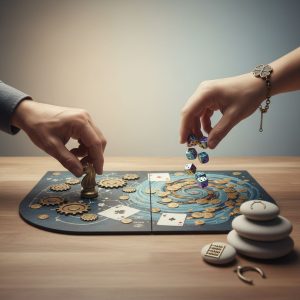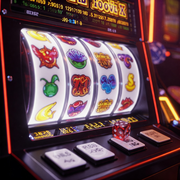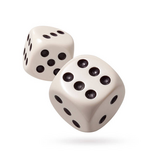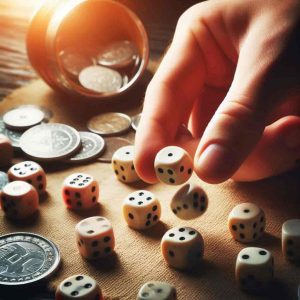 Expanding into a new betting market is tempting. A fresh league, a new sport, or a different region can look like an easy upside. More volume. More opportunities, especially in areas adjacent to jackpot gaming. But expansion only makes sense when a few complex conditions are met. Without them, you’re not diversifying. You’re diluting what already works. This isn’t about chasing novelty. It’s about knowing when your edge can survive outside its original environment. Below are the signals that matter most.
Expanding into a new betting market is tempting. A fresh league, a new sport, or a different region can look like an easy upside. More volume. More opportunities, especially in areas adjacent to jackpot gaming. But expansion only makes sense when a few complex conditions are met. Without them, you’re not diversifying. You’re diluting what already works. This isn’t about chasing novelty. It’s about knowing when your edge can survive outside its original environment. Below are the signals that matter most.
Latest Posts - Blog
Stake Schweiz: How Swiss Players Are Redefining Luck in Crypto Casinos
Swiss gamblers are discovering new ways to blend luck and strategy as digital currencies enter online casinos. Across Switzerland, players increasingly explore platforms rooted in cryptocurrency for gaming and sports bets. These venues are reshaping habits, even when local rules make direct access difficult.
Why Stake Schweiz Draws Attention
For some in Switzerland, Stake Schweiz has become a buzzed-about name. The platform stands out as a crypto-first gaming site that offers slots, live dealer tables, and an active sports book. Officially blocked in the Swiss market, it still draws attention from curious players. Many are eager to see how luck plays out when combined with digital strategy and blockchain-based systems.
Swiss Gambling Regulations and Limits
![]()
Switzerland has a long history of regulated gambling. The Swiss Gambling Act governs casinos and sports betting operators. Licensed operators pay taxes and comply with strict consumer protections. This makes the market safe, but also limited. Many high-profile crypto casino sites operate without Swiss licenses. That means local players must handle legal, technical, and financial hurdles if they want to play there.
Accessing Blocked Platforms with VPNs
One hurdle is the simple fact that some international crypto casinos restrict users from Switzerland. Officially blocked sites may redirect Swiss IP addresses. For many, the answer has been a Virtual Private Network, or VPN. By masking their location, players can connect to a server in another country where access is allowed. It is common in the tech world, but it is also technically against the terms of some gambling platforms.
Using a VPN is not a guarantee of safety. It can expose players to extra risk if they don’t understand the rules. Swiss players who connect through VPNs must protect personal data and avoid sharing sensitive information on unregulated sites. There is also the risk that winnings could be difficult to withdraw if a platform detects a restricted location. These are real consequences, and they shape how players approach international crypto casinos.
Popular Games on Stake Schweiz
Part of the appeal of crypto gaming platforms is the range of games. Traditional slot machines remain a favorite. Many crypto casinos feature hundreds of slot choices, from classic fruit machines to modern video slots with animated reels and bonus rounds. These games combine familiar mechanics with flashy visuals, giving players both comfort and excitement.
Live casino games are another big draw. Players can join real tables streamed from studios around the world. Dealers spin the roulette wheel or deal cards in real time. Chat features let players interact with dealers and each other. Live games bring strategy into the mix, as players decide when to bet, raise, or fold.
Sports betting is equally popular among Swiss punters. Whether it is football, tennis, or winter sports, crypto-based sportsbooks offer competitive odds. Some sites include live betting, where players can place wagers during a match. Quickly shifting odds and fast decisions make live betting thrilling. Crypto platforms offer a variety of markets and betting options that traditional Swiss sportsbooks may not provide.
The Role of Cryptocurrency
Behind each bet is the underlying blockchain technology. Cryptocurrencies like Bitcoin and Ethereum facilitate fast deposits and withdrawals. They also give an extra layer of privacy. Transactions record on a public ledger, but personal banking details stay private. This has appeal for players who care about data security. However, volatility in coin prices adds a new variable. A big win in crypto might be worth more or less by the time it reaches a player’s wallet.
Tips for Responsible Play
Responsible play matters everywhere, but especially in unregulated environments. Players should set limits before they start spinning reels or placing bets. That might mean deciding a weekly budget, or choosing specific times to play. Breaking these rules can turn fun into stress. Keeping gaming focused on entertainment protects both emotions and finances.
It helps to educate yourself on how crypto casinos work. Learn about blockchain transactions, how wallets function, and the differences between coins. Players who know the tools they use can make smarter decisions. Reputable third-party reviews and community forums can offer insights, though they should be read with a critical eye. Not every review is unbiased, and some forums promote risky play.
Balancing Innovation and Regulation
Switzerland also offers regulated alternatives. Many licensed operators provide online casinos and sports betting with strong consumer protections. While these may lack some of the bells and whistles of international crypto venues, they operate under local laws and guarantees. Players can weigh the pros and cons, balancing innovation with security.
Explore more articles about luck and casino gaming. Read also – The Science of Luck: Why Some Players Keep Winning Against All Odds
Conclusion: Luck Meets Strategy
At the end of the day, luck and strategy both play a role. Platforms that fuse gaming and crypto invite players to test their skills and fortune in new ways. Still, anyone exploring these options should always be mindful of the risks. By understanding the landscape, setting limits, and choosing wisely, Swiss players can enjoy the thrill of new gaming formats while keeping their play safe and fun. In the changing world of digital gambling, Stake Schweiz and similar platforms are part of a broader evolution, showing how technology and tradition intersect in Swiss gaming culture.
How to Spot Value Without Advanced Math

Estimation Shortcuts That Actually Work
Market Mispricing Clues to Watch For
Common Beginner Mistakes That Kill Value
The Real Skill Behind Value
Strategy vs Luck: The Problems in the Modern Gambling World
Contemporary gambling involves both chance and control, and decision-making. Although the element of chance is also incorporated in the excitement, knowledge of the equilibrium between the two might also enhance the experience.
Accepting the Power of Luck

Fate is, and will be, a primeval factor. Playing with randomness will give the players the chance to appreciate the randomness and not form an unrealistic expectation. Such an attitude promotes healthier emotional and fiscal participation.
Enhancing Performance with Strategy
Whereas the role of luck can be observed, strategy assists the players in taking risks and enhancing the quality of their decisions. Knowing the game rules, calculating the odds, and timing bets are very strategic, and this puts players at the forefront of control and confidence.
This moderated strategy helps to increase fun and responsible gaming.
Why Replacement Players Matter More Than Star Absences
 When a star player is ruled out, betting markets react fast. Headlines follow, social media panics, and the thrill of live plays often pushes bettors to act before thinking. Lines move sharply, sometimes within minutes. The assumption is simple: star out equals team worse. Sometimes that’s true. Often, it’s overstated. In reality, the impact of an absence is rarely about the missing star alone. It’s about who replaces them, how that player fits the system, and whether the market understands the difference. For bettors, this distinction matters more than almost anything else related to injuries.
When a star player is ruled out, betting markets react fast. Headlines follow, social media panics, and the thrill of live plays often pushes bettors to act before thinking. Lines move sharply, sometimes within minutes. The assumption is simple: star out equals team worse. Sometimes that’s true. Often, it’s overstated. In reality, the impact of an absence is rarely about the missing star alone. It’s about who replaces them, how that player fits the system, and whether the market understands the difference. For bettors, this distinction matters more than almost anything else related to injuries.The Star Absence Trap
Depth Analysis Beats Name Recognition
- Minutes are redistributed, not erased.
- Bench players are often specialists.
- Coaches can adjust rotations creatively.
- Energy levels can improve with fresher legs.
Replacement Players Are Often Misunderstood
- Simpler responsibilities
- Increased usage efficiency
- Better matchup opportunities
- Lower defensive attention
System Fit Matters More Than Raw Talent
- A motion-heavy offense may function smoothly with different personnel.
- A heliocentric system may collapse without its primary creator.
- Defensive schemes may hide individual weaknesses better than others.
Why Bookmakers Often Misprice Injuries
- Public bettors expect a move.
- The media amplifies the impact.
- Delayed adjustment looks incompetent.
- The replacement is competent.
- The role is reduced rather than replicated.
- The system adapts effectively.
- The opponent matchup favors the replacement skill set.
Short-Term vs Long-Term Absences
Depth Is a Hidden Predictor of Sustainability
- Long-term betting strategies
- Futures markets
- Situational spots during compressed schedules
Why Bettors Overvalue Stars
When Star Absences Truly Matter
- The star drives the entire offensive or defensive identity.
- The bench lacks functional replacements.
- The system is rigid
- The opponent can exploit the weakness directly.
The Bottom Line
Why Official Slots Are Transforming the Meaning of Luck in Online Gambling

New digital official slots attract both veterans and Walkers as the gambling market advances rapidly. They began as simple slot machines; now they offer equity, user experience, and engagement beyond imagination. They truly digitize luck and gaming in all forms.
Emergence of Transparent Play
Amidst all the evolution in gambling, the modern focus on transparency is revolutionary. Gamblers seek protection, and as an industry, there is a growing recognition of the need for proactive, equitable solutions.
Providers of official license slots move forward with industry compliance, including certifiable RNG, tiered payout ratios, and PCI scope clearing geographical boundaries. Openness has withered deadly skepticism, and trust flourishes, with too many players coming forward with zeal to play online slots.
Luck is no Longer About Winning
Older slot machines captured luck as a jackpot and nothing more. Their digitized counterparts expanded the range of imagination to include very engaging storylines and themes, collaborative events, and more. As such, players prize the jackpot alongside many other rewards. Thus, ‘winning’ goes beyond the one-off jackpot experience to an all-encompassing ecosystem of thrill, anticipation, and dopamine loops.
The Advances of Technology that are Associated with Fun and Fairness
It would be nearly impossible to underestimate the impact of technology. The high speed of the Internet, mobile device accessibility, and sophisticated game design have made online slots more captivating and available on a global scale.
The technology is provided by official platforms, along with the fairness audits, ensuring players’ joy is undermined and even enhancing their peace of mind. The balance between enjoyment and peace of mind is a new mark on the era of digital gambling.
ALSO READ: Why Lucky Charms Still Hold Power for Players in Online EU Casinos
The Global Appeal Of Gaming
The phenomenon of online slots has btranscended regional boundaries There has been an upsurge in player activity spread across Asia, Europe, and other areas because of the reliability of official game providers. The global momentum in online gambling is driven by the availability of secure payment options, player support, and protective policies, as fun gambling can be done with responsibility with the right frameworks in place.
The Future of Online Gaming
As the industry evolves, the meaning of luck is also changing rapidly. It is no longer about the amount of money one wins. The device one plays on, the enjoyment of the game, and tits fairnessall contribute to the new meaning of luck. The balance between trust and thrill is a positive indicator. It sindicatesthat the future of online gambling is more sustainable and healthier.
Decimal, Fractional, and American Odds Explained

When you bet on sports, the odds format you see can look very different depending on the sportsbook. In Europe, you’ll usually find decimal odds. In the UK, fractional odds are common. In the US, American odds dominate. With FunBet, once you understand how to read each type, switching between them becomes second nature.
Below, we’ll walk through each odds system, how to read it, and examples so you can compare them side by side.
Decimal Odds
Decimal odds are the most straightforward system. They show you exactly how much your total return will be for every unit staked, including your original bet.
- Format: A single number, like 1.80 or 2.50
- Used in: Europe, Canada, Australia
How to Read Decimal Odds
To calculate your return, multiply your stake by the odds.
Example 1:
- Odds: 2.50
- Stake: $10
- Calculation: $10 × 2.50 = $25
- Breakdown: $15 profit + $10 original stake
Example 2:
- Odds: 1.80
- Stake: $50
- Calculation: $50 × 1.80 = $90
- Breakdown: $40 profit + $50 original stake
Decimal odds make it easy to see the full return at a glance. If you see odds below 2.00, the team is a favorite. Odds above 2.00 mean they’re the underdog.
Fractional Odds
Fractional odds are traditional in the UK and horse racing markets. They show your profit relative to your stake.
- Format: A fraction, like 5/2 or 7/4
- Used in: UK, Ireland, horse racing worldwide
How to Read Fractional Odds
The first number is the profit. The second number is the stake required to earn that profit.
Example 1: 5/2 odds
- For every $2 you bet, you win $5 profit.
- Bet $10 → Profit = ($10 ÷ 2) × 5 = $25
- Total return = $25 profit + $10 stake = $35
Example 2: 7/4 odds
- For every $4 you bet, you win $7 profit.
- Bet $20 → Profit = ($20 ÷ 4) × 7 = $35
- Total return = $35 profit + $20 stake = $55
Even Money:
When odds are listed as 1/1, it means you win the same amount as your stake. A $50 bet at 1/1 returns $100 total ($50 profit + $50 stake).
Fractional odds can be less intuitive for new bettors, especially when the numbers get unusual (like 11/8). However, once you become accustomed to them, they clearly demonstrate value: the higher the first number compared to the second, the greater the profit potential.
American Odds
American odds, also called moneyline odds, work differently depending on whether the number is positive or negative.
- Format: A number with a plus or minus sign, like -150 or +200
- Used in: United States, online sportsbooks with US markets
How to Read American Odds
- Negative odds (favorites): The number shows how much you must bet to win $100 profit.
- Positive odds (underdogs): The number shows how much profit you win from a $100 bet.
Example 1: -150 odds
- You need to bet $150 to win $100 profit.
- Bet $15 → Profit = ($15 ÷ 150) × 100 = $10
- Total return = $25 ($10 profit + $15 stake)
Example 2: +200 odds
- A $100 bet wins $200 profit.
- Bet $20 → Profit = ($20 ÷ 100) × 200 = $40
- Total return = $60 ($40 profit + $20 stake)
Even Money:
When odds are listed as +100 or -100, it means the payout is the same as your stake. A $50 bet returns $100 total ($50 profit + $50 stake).
American odds take a little practice because of the positive/negative system, but once you spot the pattern, it’s easy to see whether a team is favored or the underdog.
Comparing the Three Odds Systems
Here’s how the same bet looks in all three formats:
- Decimal: 2.50
- Fractional: 3/2
- American: +150
All three mean the same thing: a $100 bet returns $250 ($150 profit + $100 stake).
Favorites have:
- Decimal odds under 2.00
- Fractional odds like 1/2 or 4/7
- American odds with a minus sign, like -150
Underdogs have:
- Decimal odds over 2.00
- Fractional odds like 2/1 or 5/2
- American odds with a plus sign, like +200
Converting Between Odds
Sportsbooks often give you the option to switch odds formats in your account settings. But it helps to understand conversions.
- Decimal → Fractional: Subtract 1, then turn into a fraction. (2.50 → 1.50 → 3/2)
- Fractional → Decimal: Divide first number by second, then add 1. (5/2 → 2.5 + 1 = 3.50)
- American → Decimal:
- For positive odds: (Odds ÷ 100) + 1
- For negative odds: (100 ÷ |Odds|) + 1
Final Thoughts
Odds can look intimidating at first glance, but all three systems tell the same story: how much you’ll win compared to what you risk.
- Decimal odds show the full return in a straightforward number.
- Fractional odds highlight profit versus stake.
- American odds separate favorites and underdogs with minus and signs.
Once you practice reading a few examples, switching between systems becomes second nature. And no matter which format your sportsbook uses, you’ll know exactly what your potential payout looks like before you place a bet.
From Setback to Success: A Casino Affiliate’s SEO Triumph

Search engine rankings can make or break an affiliate site. For one casino affiliate, a sudden drop in Google rankings felt like losing a high-stakes bet. Traffic plummeted, revenue dwindled, and the site’s once-dominant position seemed like a distant memory. Yet, through strategic optimization, authoritative content, and relentless link-building, this site clawed its way back to the top. This is the story of how persistence and planning turned the odds in their favor, proving that SEO success is no roll of the dice.
The journey began with a painful realization. A Google algorithm update had hit the site hard, knocking it off the first page for key terms like “online casino reviews.” Panic could have set in, but the team behind this casino affiliate case study chose to analyze instead. They audited the site, pinpointing weak spots: thin content, outdated pages, and a lackluster backlink profile. Rather than chasing quick fixes, they crafted a long-term plan. “We knew we couldn’t rely on luck,” the site’s lead strategist said. “It was about building a foundation that Google couldn’t ignore.”
Rebuilding with Authority
Content became the cornerstone of their comeback. The team revamped every page, replacing generic casino reviews with in-depth guides. They wrote detailed comparisons of platforms, covering bonuses, game variety, and payout speeds. Each piece was backed by research, including user feedback and industry trends. They also tackled niche topics, like cryptocurrency gambling, to attract a growing audience. By focusing on user value, they turned their site into a go-to resource. Traffic began to trickle back, proving that quality content speaks louder than shortcuts.
But great content alone wasn’t enough. The team knew that authority in Google’s eyes comes from trust. They optimized on-page elements, ensuring fast load times, mobile responsiveness, and clear navigation. Schema markup was added to help search engines understand the site’s structure. They also cleaned up internal links, making it easier for users to explore related topics. These technical tweaks, while less glamorous than content, played a crucial role. “It’s like tuning a car,” the site’s SEO manager explained. “Every small adjustment adds up to a smoother ride.”
The Power of Link Building
Backlinks were the next piece of the puzzle. The site had relied on low-quality links in the past, which hurt more than helped after the algorithm update. The team shifted gears, focusing on earning links from reputable sources. They reached out to gambling blogs, industry news sites, and even finance platforms covering crypto trends. Guest posts, sponsored content, and partnerships with influencers helped secure high-authority links. Over time, their backlink profile transformed from a liability into a strength, boosting their domain authority and rankings.
Outreach wasn’t always smooth sailing. Rejections were common, and some partnerships took months to finalize. Yet, the team stayed persistent, treating every “no” as a step closer to a “yes.” They also leveraged social media, sharing snippets of their content on platforms like Twitter to attract organic links. This multi-pronged approach paid off. By the end of the first year, their site was ranking for competitive keywords again, and referral traffic from backlinks was up 40%. Persistence, not chance, was the key.
READ ALSO: Strategies to Increase Your Casino Luck
Lessons from the Comeback
What can other affiliates learn from this? First, SEO isn’t a game of luck; it’s a science. Start with a thorough audit to identify weaknesses. Next, prioritize user-focused content that answers real questions. Don’t skimp on technical SEO—site speed and structure matter. Finally, invest in ethical link-building. Here’s a quick checklist for success:
- Audit your site for content and technical gaps.
- Create in-depth, research-backed content.
- Optimize for mobile and speed.
- Build high-quality backlinks through outreach.
- Track progress with tools like Google Analytics.
The casino affiliate’s story isn’t just about rankings. It’s about resilience. Each step; content creation, technical fixes, link-building, was a calculated move to reclaim their spot. They didn’t wait for Google to roll the dice in their favor. Instead, they stacked the deck with strategy and hard work. Today, their site not only ranks higher but also earns more trust from users. As the lead strategist put it, “SEO isn’t about beating the system; it’s about earning your place.” For affiliates willing to put in the effort, that’s a winning hand worth playing.
The Role of Luck in Playing Slots Online
Along with the bright graphics on the machine and the cashing sounds of the spinning reels, online slots games are highly captivating. Most of the games in the casino are played with strategy, slots are generally covered with a game of chance. Trusted slots definitely pay (slot terpercaya pasti bayar), but slots is powered by RNG or random number generator, the one that ensures the game’s fairness and randomness. Responsible slot machine play requires an understanding of the role that luck plays.
Random Number Generator: The Game’s Core
The RNG is the key component of all online slots. A series of random numbers is produced by this complex algorithm, and these numbers subsequently match the symbols on the reels. Because every spin is a separate occurrence, past results have no bearing whatsoever on how things turn out in the future.
Slots are a game of pure luck because of this unpredictability. It is impossible to influence the reels or forecast the result.
Learning the Factor of Chance
 Unlike table games, such as poker and blackjack, that require skills and technique to increase odds, slot machines highly depend on chance. But, RNG tends to be unaffected even if some players follow betting habits or playing rituals. Hence, the unpredictability is what makes slot gaming an exciting one. This is the player’s belief for a potential big win over every spin.
Unlike table games, such as poker and blackjack, that require skills and technique to increase odds, slot machines highly depend on chance. But, RNG tends to be unaffected even if some players follow betting habits or playing rituals. Hence, the unpredictability is what makes slot gaming an exciting one. This is the player’s belief for a potential big win over every spin.
Play slots only for fun. If you lose, keep in mind that it is normal. It is important to always have that in mind every time you play slots.
Online Slots: The Luck and Responsible Gaming Behind It
Playing responsibly is important in slots gaming even if it is covered by mere luck. Players need to know the odds, establish their budget, and adhere to it. Believing in “hot” streaks or chasing losses can result in financial issues.
Always remember that entertainment should be put in mind while playing slots. But, playing it responsibly should also welcome the element of luck. Savor the thrill, but always put sensible and informed gaming first.
Stars and Stakes: Astrology and Gambling Luck
Gambling is just one more area where astrology has a long history of influencing people’s lives. Many people think that the positions of the stars can affect our luck, especially when we play the slots.
The Universe’s Risky Bet
When it comes to betting, astrology is a religion for some. To find out how lucky they are, they consult their natal charts, horoscopes, and celestial alignments. Some zodiac signs, like Libra and Gemini, are thought to have a natural talent for gambling because of their sociability and intelligence. Taureans and Capricorns, on the other hand, have a reputation for being more reserved and careful than other signs.
Nostradamus and the Law of Lucky Numbers
Based on a person’s horoscope, astrologers frequently recommend lucky days, numbers, and times of day. A person with a Mars alignment may do best on Tuesdays, while a Venus-ruled personality may have more success with the number seven.
With a Glance
Although astrology is an interesting and entertaining hobby, one must always keep in mind that gambling is largely dependent on luck. A fair dosage of skepticism is necessary when approaching the idea of connecting gaming behaviors with astrological profiles, even though some individuals find it exciting and comforting.
Final Thoughts
Knowing the odds and managing your cash responsibly are the two most important factors in gambling success. While the stars can add a whimsical and mystical touch to your gaming, the true magic is in the mix of strategy, knowledge, and, of course, enjoyment.
What Happens When You Win the Lottery due to Luck
Imagine picking lotto numbers in the shopping queue without thinking. Your phone vibrates with a news alert a few days later—you won! World turns abruptly. Let’s examine the chaos that follows a lucky lotto victory.
Euphoria and Overwhelm
This gives you mixed feelings:
JOY
 The first reaction is pure joy. Dreams formerly believed unachievable are now possible. The alternatives are endless—quit your work, explore the world, or start a business.
The first reaction is pure joy. Dreams formerly believed unachievable are now possible. The alternatives are endless—quit your work, explore the world, or start a business.
OVERWHELMING
Euphoria swiftly turns into overwhelm. A lot of money can paralyze. You manage it how? You tell whom?
Lawyers, Advisors, and Spending
It allows you to seeking advice from counsels:
FINDING ADVICES
Professional guidance is essential here. Financial experts and lawyers become your best friends, helping you with taxes, investments, and sudden money. While splurging is tempting, smart winners put financial security first.
Ripple Effect: Family, Friends, and Fame
Now everyone seems like a long-lost relative. You may have to deal with unwelcome attention from distant friends and family, depending on your comfort level with notoriety. Although managing these relationships is difficult, it’s a chance to reconnect with caring people.
New Life: Freedom and Choice
Winning the jackpot gives you ultimate freedom—choice. You can pursue your passions, tour the world, or relax financially. However, independence has its drawbacks. Finding purpose beyond worldly items and keeping grounded will ensure your newfound fortune delivers enduring enjoyment.
Randomly winning the lotto can change your life. It opens doors to amazing opportunities, but it requires careful planning and self-awareness.
Win Consecutively: Use Lucky Charms for Gambling
Gamblers have held onto lucky charms for ages, hoping for a stroke of luck at the poker table or the roulette wheel. These charms, whether they are four-leaf clovers or rabbit’s feet, stand for a wish to exert control over the random realm of chance.
Are Lucky Charms Effective?
As far as anyone can tell, there is no proof that lucky charms have any effect on luck. Still, confidence in one’s abilities can be a potent motivator. Research has demonstrated that engaging in rituals and superstitions can enhance one’s self-assurance and optimism, leading to enhanced decision-making and concentration when playing a game.
Charms That Bring Good Fortune All Over the Globe
Many things are thought to bring good fortune in different cultures. Some intriguing examples are as follows: In Western cultures, the rare four-leaf clover represents trust, optimism, love, and good fortune.
Rabbit’s Foot (North America and Europe)
It is believed that rabbit’s feet protect people from bad luck and evil spirits.
Chinese Lucky Dice
In China, it is thought that dice with lucky symbols etched on them will bring good fortune.
Belief and Its Power
No matter your stance on fortunate charms, you can’t dispute the impact they have on gamblers’ minds. Having a lucky charm around can help you feel better and keep a positive attitude. If that fortunate penny gives you the confidence boost you need, then put it in your pocket before your next game.
Conclusion
Although lucky charms cannot ensure victory, they do enhance the game with an element of entertainment and superstition. Never forget that gambling is a form of fun that should be practiced in a responsible manner.
Gambling: A Game of Chance or A Game of Luck
Picture the exhilaration of a winning run as you stand with a stack of chips in front of you. If something unexpected happens to ruin your hard work, it can be really disheartening. The gambling world is frequently entangled with luck, that elusive friend. But does skill have any bearing on the result, or is it purely a matter of chance?
Luck and Its Allure
People have blamed random chance for their successes and failures for generations. Some gamblers believe that by following certain rituals or using lucky charms, they might increase their chances of winning. Numerology also plays a role in this belief. This faith in chance can be an effective incentive, increasing the thrill of the game and ensuring participants’ continued participation.
Competence Can Swing It
While chance does play a part, it is far from decisive. Skilled players have a far better chance of winning games that require strategy and decision-making, such as blackjack and poker. You can’t win consistently without mastering probability, finding efficient strategies, and managing your cash wisely.
 Over time, the house always comes out on top. No matter how good you are at a game, the house always has an advantage in a casino. The house edge refers to this inherent advantage that guarantees the casino will make a profit over time. This means that while skill can help you win some games more often than others, it is by no means a guarantee.
Over time, the house always comes out on top. No matter how good you are at a game, the house always has an advantage in a casino. The house edge refers to this inherent advantage that guarantees the casino will make a profit over time. This means that while skill can help you win some games more often than others, it is by no means a guarantee.
Summary
Gambling is, at its core, an intricate game of skill and chance. Luck can either bring you a windfall or a shocking loss, but you can greatly influence your casino experience by honing your abilities and understanding the chances. Keep in mind that gambling responsibly is all about having fun, not trying to win big. No matter the outcome, play for fun, establish boundaries, and savor the excitement of the game.
How to Draw Fortune to the Casino
In the gambling industry, where strategy and chance go hand in hand, the illusive idea of luck frequently takes center stage. Even if there isn’t a surefire technique for succeeding at the casino, there are strategies to improve your luck.

1. Accept Good Energies
It’s thought that optimism attracts luck. Have an optimistic attitude before entering the casino. Let negativity go, visualize success, and concentrate on favorable results.
2. Charms and Rituals of Fortune
Many gamblers swear by their rituals or lucky charms. Whether it’s a treasured memento, a fortunate coin, or a specific practice before performing, these customs can establish a feeling of familiarity and comfort, creating an atmosphere conducive to good fortune.
3. Select the Proper Games
When it comes to luck, not all casino games are made equal. While some games depend solely on luck, others call for skill and strategy. Knowing the odds and selecting games that suit your comfort level will significantly impact your luck.
4. The Timing is Crucial
It may surprise you that timing affects how you perceive the casino. Certain players curse only during certain hours of the day or on certain days of the week. Play around with your gaming schedule to find out when luck is on your side.
One Last Thought
Even while luck is still a moving target, you may have a better time at the casino by using positive energy, adopting rituals, choosing your games wisely, and playing with timing. Recall that gambling is enjoyable, and you can improve your chances of striking it lucky at the casino by adopting the appropriate mindset.
Unlocking Fortunes: Best Strategies for Increasing Gambling Luck
In games where anything can happen, luck is frequently the most important factor in determining who comes out on top. Chance is always present, but you have the ability to increase your chances. Gain a better understanding of how to make the most of Lady Luck and enhance your gaming experience.

Visualize Positive Outcomes
Trust the power of positive thoughts. Imagine winning before going to the casino or betting. A positive mental space can affect how you think about luck, improving your game performance.
Good Luck Rituals and Charms
Many gamers believe these actions will bring luck. Symbols like a favorite object or a pre-game routine can boost confidence and luck.
Strategic Bankroll Management
Discipline and luck often coexist. Limit your gaming spending and stick to it. Smart bankroll management increases your chances of success and reduces short-term changes.
Researching and Making Informed Decisions
Knowledge is powerful. Know your games, play them well, and plan ahead. Understanding the game may help players make better decisions.
Conclusion
Luck is hard to locate and forecast, but these strategies can make it appear more plausible. Positive thinking, personal routines, disciplined bankroll management, and informed decisions can help you win at gaming. Smartness is more helpful in chance games.
Is Luck a Factor in Online Casino Games?
People frequently debate whether online casino games are luck or talent and forethought. This article will examine how luck and online casino games create the thrilling world of online gambling.
Best of Luck with Online Casinos
Online casino games are definitely luck-based. Chance is constantly involved in slot machines, blackjack, and roulette. Online casinos employ RNGs to provide fair and unpredictable game results. Luck determines victories and losses. Luck is vital at the casino because you never know when you’ll win the jackpot or get the proper card.

Skills and Plans
Luck is vital, but not everything. Online casino games like poker and blackjack demand skill and planning. Players’ choices can alter the outcome of these games. Skilled blackjack and poker players can win by counting cards and bluffing. Luck has a role, but skill and plan can make or break you.
The Right Mix of Luck and Skill
In different games, luck and skill interact differently. Poker and blackjack require skill and luck, while slots are mostly luck. The balance between them makes online gambling games fascinating. Luck-based games can be fun while improving strategy-based games.
One Last Thought
Does internet betting involve luck? Of course. The games’ mystery and excitement stem from this. However, talent and strategy can also affect your performance, especially in some games. A good blend of skill and luck keeps people coming back. This makes online casino games fun for beginners and pros. Everyone may enjoy the thrill of online gambling, whether they’re lucky or trying to improve.
Helpful Gambling Advice That You Can Actually Use
Many gamblers wonder if luck may help them win. Gambling requires luck, although various methods can improve it. This article discusses casino winning strategies.
Knowledge of the Games
Understanding your games is essential to winning. Poker, blackjack, roulette, and slots require knowledge of their rules and strategies. Knowledge is power, and informed choices can improve results.
Financial Planning
Your cash is crucial in gaming. Determine your budget before gambling. This will assist you avoid losing money and play within your means. A well-managed bankroll lets you play longer, giving lady luck more chances.
Selecting the Appropriate Games
Every casino game has distinct odds. Some games have a huge house edge. Play blackjack or video poker instead of slot machines, which have a bigger house advantage. Choose your games properly to boost your long-term luck.
Superstitions and Practices
Many gamblers have superstitions while entering a casino. Although there is no proof, these strategies have been demonstrated to boost self-confidence and optimism, which may lead to greater luck.

Timing and Patience
Gambling is sometimes all about timing. If you’re losing, take a break and try again. Being patient can pay off as luck changes. Assess your options and don’t let temporary setbacks stop you.
Conclusion
Improve your gaming luck by enjoying it more than influencing chance. Knowing the games, limiting your money, choosing the correct games, being patient, and being positive about superstitions all boost your chances of winning.
Is Luck a Factor in Online Casino Games?
One of the oldest debates among those who partake in online casino games is whether or not chance plays a significant role. This is an increasingly pressing concern as the online gambling industry expands. Do your wins stem purely from luck, or do they have another explanation?

Using Random Number Generators (RNGs) and a Little Luck
Like their land-based counterparts, casino games found on the internet rely mainly on random chance. Fairness in games is typically guaranteed by using Random Number Generators (RNGs). These algorithms generate truly random results, just like in a brick-and-mortar casino.
Competence and Forethought
Online casino games rely heavily on chance, but luck isn’t everything. Results are often open to manipulation by the players’ own ability and strategy. Poker and blackjack, for example, are examples of games where skill and chance both play a role.
Financial Planning
Bankroll management is an additional factor to think about. Online gaming success can’t be maintained solely by chance. Successful gamblers know when to bet, how much to stake, and when to walk away from the table.
Conclusion
There’s no denying the importance of lady luck when it comes to playing casino games online. Results generated by RNGs are guaranteed to be random and fair. However, it’s important to remember that luck isn’t everything. Players can affect the outcome through their own skill, strategy, and careful management of their bankroll.
So, does chance play a role in virtual gambling? Yes, without a doubt. Keep in mind that while luck does play a role, it is only one factor. The secret to being a winning player at online casinos is realizing the importance of both luck and skill.
Apps for Nyc Live Betting Site
When choosing an online sportsbook, personal choices should take precedence. The sites with the most important features for you and the finest customer engagement should be on the forefront of your priorities.

DraftKings Sportsbook in New York
In New York, the DraftKings NY software is now live and accepting bets. The betting carousel is among the first things you’ll start noticing out about DraftKings NY app. This rotating display shows a selection of bets deemed most relevant by DraftKings based on your account profile preferences and betting history. On DraftKings, no two bettors share the same experience.
Furthermore, the app is quick and easy to use. Finally, DraftKings uses the very same app in all of its states, so you won’t have to switch and/or download multiple apps if you frequently visit Pennsylvania or New Jersey.
Sportsbook PointsBet New York
The most obvious distinction of PointsBet Sportsbook is its trademark bet money, the Points Bet. A Points Bet is a traditional dispersed bet on the final margin of victory. However, the difference between the actual margin and PointsBet’s estimate determines your payout — so every point of difference translates into an enhanced multiple. So, users can win and lose a lot of money with these bets, but you won’t find them somewhere else. PointsBet NY also has a tradition of making customer-friendly decisions, frequently issuing refunds if the outcome of a game is extremely unexpected.
Understanding Gambling Luck
Individuals have been searching for methods to increase their luck and, by extension, their probability of winning, ever since the idea of gambling emerged. Regardless of whichever way you look at something, luck plays a significant role in gambling, and you have to “get lucky” in order to succeed.

How to manage the fortune
It’s common to hear people refer to luck, fortune, or any other term you wish to give the occurrence, as being elusive and liable to change. In casinos, winning runs arrive and go without notice. Hours-long consecutive wins can suddenly end, and no despite whatever you do.
A Little Ability Also Helps
Individuals can never win at gambling because you can’t outsmart the house, and if you play long enough, a casino will always be the winner. In the end, it doesn’t matter if it takes place over the course of 50 trips or just one.
The State of Luck is One of Continual Flux
Whatever definition you give to luck, one thing always holds true regardless of the circumstances. Actually fortunate and unfortunate people don’t exist. Some people can appear to be luckier today than others, and vice versa. But that doesn’t mean the same unfortunate person won’t be extremely lucky tomorrow.
Items That Can Improve Your Gambling Luck
There is no avoiding the fact that people are superstitious. Different cultures have different superstitions. Diverse people may assign different meanings to the same word. In some cultures, seeing a black cat on the street is a sign of bad luck, but in others, it’s a favorable omen. Since superstitions have been around for a long time.
Some Items You Can Use for Gambling Luck
The following items have been found to increase gamblers’ odds the most:
Totems of Hope
All right, so you’ve learned your lesson about what to avoid doing while gambling. It’s up to you to decide if you want to trust them. The degree to which you place stock in superstitions determines how plausible they are. Still, some of these beliefs are very reasonable, and it is best to stick to those standards.
Shamrock
The four-leaved clover, sometimes known as a shamrock. It is a popular gambling good luck symbol. Since the three-leaved shamrock is the universal symbol of St. Patrick’s Day, it’s no wonder that this lucky charm has deep roots in Irish culture.
Horseshoe
Horseshoes are widely believed to be good luck charms. The superstition dates back to an old folk story in which the Devil promised to leave well enough alone. If a man attached a horseshoe to his hoof. The horseshoe, however, has two sides. Nail it in a U shape to bring prosperity to your home.
The Most Popular Casino Fortune Tales
Most gamblers hope to achieve a big win that will alter their lives forever. Given that winning and winning big is not impossible for anyone, it is only appropriate that everyone give it a shot. The highest gambling win in existence and some of the most well-known winners around the globe are listed below:

GRACIOUS MCKENZIE
Gloria McKenzie, who won the Powerball jackpot in May 2003, was the country’s biggest single winner. The grandma, who is 84 years old, outperformed the 1 of 175 million statistics by winning the jackpot. Her incredible victory was made possible by a kind soul who, as they were in line to purchase tickets at the supermarket, gave way to her.
GARCIA-PELAYO, GONAZOL
The genuine loves of Spanish song producer Gonazol Garcia-Pelayo were arithmetic and gambling. He came to the conclusion that none of the casino roulette wheels in the 20th century were completely random. He maintained that certain people preferred particular numbers above others during the same strokes.
Kerry Packer
A well-known Australian billionaire is Kerry Packer. He made the decision to play some baccarat and blackjack for fun one evening. He was interested in the procedures and the nature of the games. According to rumors, he earned $20 to $40 million. The actual sum of his earnings that night is unclear because they were so enormous!
History has shown that some gamblers have been fortunate or cunning enough to gain huge amounts of cash.
Helpful Strategies for Winning More at Internet Casino
Betting has existed since the start of humanity, yet the strategies had evolved over time. Even if you’re playing poker at a live casino or putting internet bets at one, the act revolves around taking a gamble and hoping to win.

Gaining would be even simpler now that betting has reached its pinnacle. Internet gambling companies now provide gaming experience, enhanced betting, as well as other methods to attempt your luck. To continually have much more big earnings, a commentator, similar to any other business, needs special qualities, experience, and advice. Even though it takes considerable work, it is possible to achieve success when browsing the web.
5 Practical Methods to Gamble
Taking sensible decisions about which online gambling to participate in as well as depending purely on chance are both reasonable choices. It is already regulating the amount of cash that we are willing to gamble with. Here are some steps to take to be successful in gambling:
- Making the most of the greatest incentives.
- Risk assessment that works.
- Select the best game choices.
- Practice makes perfect.
- Responsible for gambling at relevant websites.
Final Thoughts
There are other factors to consider before playing casino games, much alone winning big. The strategies presented in this article ensure a positive outcome. Regardless of the expertise rankings, you may confront, keeping to your approach and sticking to the money will keep you safe. Play wisely and have fun!
Best Strategies for Slot Games

Slots are unquestionably a matter of luck, but it’s still just a machine! Understanding the symbols that offer a better selection and a higher winning percentage can alter the outcome.
Over time, experience is gained from playing the game. It can aid in a deeper understanding of how the combo is generated. It will be nearer a victory.
Best Techniques and Strategies for Slot Machines
There are no pre-installed tactics for the slot machine. It varies depending on the needs and the various circumstances. The ones who assist are as follows:
1-Always wager the maximum
It is thought that increasing your stake size will boost your chances of winning. It makes way for bigger payouts, extra features, and better benefits. Try your best to find a machine that supports continual maximum bets!
2-Avoid complicated slots
Find a simple machine when looking for the slots with better playing odds. Investing in the best is necessary if one wants to unwind. Otherwise, a straightforward, seemingly dull slot machine could be your best friend when it comes to winning!
3-Progressive slots should be avoided
Progressive slots have the potential to be alluring, overwhelming, and difficult. However, they also carry hazards that some people might not want to take. Stick to ordinary slots if you’re thinking about a winning strategy. They are dependable and provide the best services possible.
Using Your Luck to Win Gambling
Gambling is exciting and gratifying, but it can also be quite dangerous. To win at any wager, you must first place a wager before waiting for the game’s outcome to determine if you win or lose.

Even the most experienced online casino gamblers understand that they are trying their luck every time they place a wager. As a gambler, you must understand that you win if fortune is on your side and lose if you are not lucky enough.
Using Your Luck to Win
Because good fortune is linked to gambling success or failure, numbers of gamblers are always attempting to ensure that they are in a fortunate situation to win. To be successful in betting, some people use charms, while some rely on their mood and magical beliefs. The following gambling tips will help you gain control over your chances of winning at gambling.
1-Have faith in your gut.
Because gambling relies on the generation of random numbers, you must be certain that the odds you select are your favorites.
2-When you’re gambling, keep a positive attitude.
Players winning more in betting are more likely to feel relaxed, peaceful, and confident while playing.
A person’s moods influence the type of energy he or she will give and receive.
3-Play on the reputable gambling website
Because gambling comprises both losing and winning, you should choose a size that ensures you have a higher probability of winning than losing.
Why EU Casinos Accepting UK Players Are Winning Over British Gamblers Fast

The growing number of EU casinos accepting UK players is a recent development that many British players are taking advantage of.
With flexible banking, a variety of gaming, and various bonuses, gaming on these UK-friendly EU casinos is a new, enticing gaming experience.
UK players are discovering these sites where they can enjoy high-quality gaming while sampling the variety of entertainment and cultures in the European gambling market.
Engaging Diversity of Games
Of the many factors that entice EU casinos British players, the diversity of gaming is the chief contributor.
With the availability of classic slots and roulette gaming tables, in addition to live dealer offerings and new content that is constantly being added, there is a gaming activity suited for every player’s inclination.
Valuable Marketing Promotions
Of the characteristics that make EU casinos UK players are the bonuses that they market. Valuable bonuses are UK welcoming packages, free gaming spins, and other seasonal gaming promotions.
This marketing approach gives British players UK value and a reason to return to the same site. This method builds value for UK gamblers and is a principal reason for the increased demand.
Safe, Rapid, and Timely Banking Services
Payment methods are very critical when it comes to player satisfaction, and EU casinos that accept UK players have mastered it.
Credit cards, e-wallets, and cryptocurrency options make it easy to make fast, secure transactions to fund and withdraw from your account. This flexibility eliminates a common obstacle UK gamblers often face when trying overseas sites.
ALSO READ: Why Official Slots Are Transforming the Meaning of Luck in Online Gambling
Casinos Personalized and Friendly
Having customer service available can be make or break, and that is why EU casinos get to be as popular as they are. English live chat, tailored promotions, and VIP programs provide a sense of community and support.
Attention to detail transforms a simple gambling session into an extremely positive and memorable experience, and EU casinos remain popular.
Conclusion
Popularity of EU casinos among UK players is a recent phenomenon that marks the beginning of a new era of cross-border online gambling.
UK players are enamored with these casinos for the high-quality gaming experience, user-friendly interfaces, high welcome bonuses, and an overall seamless entertainment experience.
These factors underline the importance of UK players as the primary market of these high-performing casinos.
Exploring the Role of Luck in Baccarat Gambling and Player Decision-Making
Many players are drawn to baccarat because it blends simplicity with the anticipation of unpredictable outcomes. The game creates an experience that feels both controlled and exciting. Baccarat (บาคาร่า) continues to attract beginners and high rollers alike due to its steady pace, clear betting options, and relatively low house edge.
It has long been recognized for offering a balanced combination of chance and light strategy, making it ideal for players who appreciate structure while still enjoying the thrill of uncertainty. Baccarat naturally leads into a much broader conversation about whether luck truly influences gambling outcomes and how much control players can realistically expect while playing any casino game.
Baccarat Highlights the Ongoing Debate about Luck in Gambling
The structure of baccarat helps illustrate how luck plays a significant part in gambling, especially when outcomes depend on card draws and probabilities that no player can fully predict. Even with consistent betting patterns or disciplined bankroll management, the result of each hand still hinges on factors beyond human influence.
As players explore this balance, they begin to understand why baccarat is often used as a reference point in discussions about gambling luck. The game’s straightforward approach shows how limited control can be, despite the presence of strategic elements that help shape decision-making.
How Baccarat Sets the Line between Chance and Strategy?

In baccarat, players choose between only a few betting options, which simplifies the process and reduces the impact of complex decision-making seen in other card games. Since the cards determine everything once the bet is placed, baccarat reinforces the idea that luck sits at the center of the game.
Even so, experienced players know they can optimize their sessions by making consistent choices, avoiding high-risk side bets, and pacing their play. While these strategies don’t remove the role of luck, they help guide behavior so players feel more grounded in every round they participate in.
Understanding the Psychological Side of Gambling Luck
Many gamblers, including baccarat enthusiasts, develop personal rituals or beliefs about lucky streaks and patterns. These perceptions often make gameplay more engaging, even though the mathematical structure behind baccarat stays the same no matter who sits at the table.
Believing in luck doesn’t change the outcomes, but it can affect a player’s confidence, decision-making, and emotional control.
For many, the sense of luck becomes an enjoyable part of the experience, helping them stay poised while navigating both wins and losses during extended play sessions.
Where Luck and Discipline Intersect in Games like Baccarat
Understanding that luck plays a strong role in gambling helps players develop healthier habits when engaging with baccarat and other games. Instead of chasing outcomes, they learn to focus on consistent bet sizing, maintaining a calm mindset, and stepping away when needed.
With these habits in place, baccarat becomes a more enjoyable and sustainable activity, even when luck shifts unpredictably. The game encourages individuals to acknowledge randomness without letting it dictate impulsive decisions, reinforcing a balanced approach to gambling that applies well beyond the casino table.
The Science of Luck: Why Some Players Keep Winning Against All Odds

Luck has fascinated gamblers, scientists, and philosophers for centuries. From ancient dice games to modern casino floors, people have tried to understand why fortune seems to favor a few while others endlessly chase it. Is luck truly random, or can it be influenced by mindset, behavior, or probability itself?
Researchers studying chance suggest that what we call “luck” might be more about perception and pattern recognition than pure randomness. This perspective can be seen in games like Delhi Satta King, where players often believe that certain numbers or timings are “lucky.” While the odds remain consistent, the human brain tends to find connections even in random outcomes, fueling the illusion of control.
Luck, Probability, and Human Behavior
Luck feels magical, but it can often be explained through simple math. Every game of chance, whether it’s roulette or lottery draws, follows a predictable statistical pattern. Yet, people often remember their wins more vividly than their losses. This cognitive bias makes them feel “luckier” than they actually are.
Psychologists have found that optimism plays a huge role in this perception. When people believe they are lucky, they tend to take more risks and engage more confidently in games or decisions. Ironically, this behavior can lead to real success, not because the odds change, but because confidence improves focus and persistence.
The Illusion of Control
One of the biggest psychological factors behind luck is the illusion of control. Gamblers often believe they can influence random outcomes through rituals, charms, or strategic timing. Tossing dice harder, choosing a “lucky” slot machine, or repeating certain habits can create a false sense of power over randomness. While such acts don’t actually alter probabilities, they can affect emotions and engagement, which makes the experience more personal and thrilling.
Studies on lottery players reveal an interesting pattern. People who choose their own numbers are more emotionally invested in the outcome than those who let a machine pick for them. Even though both have equal odds, self-chosen numbers give players a psychological advantage, an illusion that they’re somehow in sync with luck itself.
Can Luck Be Trained?
Surprisingly, some experts believe luck can be “trained.” British psychologist Richard Wiseman conducted a long-term study on self-proclaimed lucky and unlucky people. His findings suggested that lucky people tend to notice opportunities, act on their instincts, and maintain open-mindedness. In other words, luck might not come from the universe but from awareness and attitude.
- Lucky individuals tend to create more social connections, which increase their chances of encountering good opportunities.
- They trust their intuition, leading to faster and more confident decision-making.
- They interpret events positively, seeing setbacks as temporary rather than permanent.
This means luck might not be supernatural after all. Instead, it could be a result of behavioral patterns that maximize one’s exposure to potential success. A person who’s alert, positive, and adaptable may seem “lucky” because they make the most of random opportunities. For a deeper look at how strategic thinking and persistence can turn uncertainty into opportunity, you can read From Setback to Success: A Casino Affiliate’s SEO Triumph.
When Probability Meets Persistence
Luck and probability often intersect in unexpected ways. A consistent player who understands the odds and practices patience can outperform someone who chases quick wins. The same principle applies to professional poker players who rely more on skill and psychology than mere luck. Over time, probability favors consistency.
Games like Sattaking often reveal this mix of persistence and randomness. Players who study patterns or time their entries believe they’re aligning with fortune, though they’re really aligning with probability cycles. The more one plays, the more the law of averages begins to balance wins and losses.
The Fine Line Between Luck and Logic
Luck and logic often dance together in the world of chance. Whether it’s flipping a coin or betting on a digital lottery, understanding probability helps manage expectations. Luck may give an edge, but math decides the outcome over time. That’s why professional gamblers, statisticians, and even financial traders study probability deeply, to replace superstition with strategy.
At the end of the day, luck is partly perception and partly probability. Whether it’s on the casino floor or in a game of Sattaking, what feels like a lucky streak may simply be the random alignment of favorable odds. Yet, belief in luck keeps the thrill alive. It fuels hope, ambition, and the timeless chase for that one perfect win. And maybe that’s what makes luck—real or imagined—so irresistible.
The Strength of Lucky Gambling Mantras
Many gamblers, either play for fun or money, use superstitions to get an edge. Mantras are one of these techniques that stand out. A gambling mantra is not a spell; it is a way to clear your thoughts and bring you good energy. People think that these brief, powerful statements can help players relax and feel more confident before or during a game. It’s a trick for your mind that makes you feel in charge.
Chants of Trust
Putting Your Mind to Work
Focusing your mind is the main reason to use a mantra. Saying a simple mantra to yourself and taking a few deep breaths before sitting down at a poker table or others. Blocking out distractions can be helped by phrases as well as focusing on your approach. This inner calm helps you think more clearly, which is a big plus in any game of skill or chance. A mantra takes your mind off of the stress of winning and focuses it on playing effectively.
Bringing in Good Energy
There are some mantras that are more spiritual. They could be old chants or simple affirmations that bring good luck or wealth. Expecting good things to happen is helping yourself with this practice. Having a good attitude can really change how you feel and how quickly you can get over a loss.
Final Statements
A gambling mantra is a way on getting ready emotionally and mentally. It won’t improve the odds or ensure a win, but it can help you become a more intelligent and tough player. You can tap into your genuine luck by using a mantra.
Exploring the Science of Luck: Why Online Slot Players in Malaysia Believe in Hot Streaks
 Luck fascinates people across cultures, but in Malaysia, it holds a special place in the hearts of online slot players. Many believe in “hot streaks,” those magical moments when wins seem to come effortlessly. This belief shapes how players approach games, often guiding their choices more than logic or strategy. But what drives this fascination with luck? The answer lies in a mix of psychology, cultural beliefs, and the mechanics of probability.
Luck fascinates people across cultures, but in Malaysia, it holds a special place in the hearts of online slot players. Many believe in “hot streaks,” those magical moments when wins seem to come effortlessly. This belief shapes how players approach games, often guiding their choices more than logic or strategy. But what drives this fascination with luck? The answer lies in a mix of psychology, cultural beliefs, and the mechanics of probability.
Players often feel a rush when they hit a series of wins. This sensation, known as a hot streak, can make them think the game is “on their side.” Platforms like qqclubs online slot game Malaysia amplify this excitement with vibrant graphics and frequent small wins that keep players hooked. Psychologists call this the “illusion of control,” where random outcomes feel predictable. For instance, a player might believe that sticking to a specific slot machine will yield better results because it “feels lucky.” Yet, every spin is governed by a random number generator, ensuring outcomes are purely chance-based.
The Psychology Behind Hot Streaks
Why do players cling to the idea of hot streaks? The human brain is wired to find patterns, even in random events. This tendency, called apophenia, makes people see connections where none exist. In slot games, a few consecutive wins can spark the belief that a streak is underway. According to Dr. Jane Lim, a Malaysian psychologist, “People want to believe they can influence luck. It gives them a sense of agency in an unpredictable world.”
This belief affects gameplay decisions in significant ways. Players might increase their bets during a perceived hot streak, thinking the momentum will continue. Conversely, they might abandon a machine after a string of losses, assuming it’s “cold.” These choices often stem from emotion rather than reason, leading to impulsive decisions. For example, a player might chase losses, hoping to recapture a lucky moment, only to find their budget dwindling.
Cultural Influences on Luck in Malaysia
Malaysian culture adds another layer to the obsession with luck. Many players draw on traditional beliefs, such as numerology or superstitions, to guide their gaming. Numbers like 8, associated with prosperity, or rituals like wearing a lucky charm, are common among slot enthusiasts. These practices make the gaming experience feel personal and meaningful, even if they don’t change the odds.
Such cultural elements blend seamlessly with modern gaming platforms. Online slots in Malaysia often incorporate themes tied to local traditions, like festivals or mythical symbols, which resonate with players. This connection strengthens their belief in luck, as familiar symbols feel like good omens. Similarly, superstitions in online gaming persist globally, with players in regions like Europe relying on lucky charms to enhance their experience. However, the reality remains: slot outcomes are random, and no charm or ritual can alter the algorithms.
Probability: The Cold Truth Behind the Reels
Understanding probability can demystify the allure of hot streaks. Each spin in an online slot game is independent, meaning past results don’t influence future ones. This concept, known as the gambler’s fallacy, tricks players into thinking a win is “due” after a losing streak. In truth, the odds reset with every spin, unaffected by previous outcomes.
Here’s how probability shapes gameplay:
- Random Number Generators (RNGs): These ensure every spin is unpredictable, making hot streaks a matter of chance, not destiny.
- Return to Player (RTP): Most slots have an RTP of 90-96%, meaning players get back a percentage of their bets over time, but not necessarily in one session.
- Volatility: High-volatility slots offer bigger but less frequent wins, which can feel like hot streaks when they hit.
Knowing these facts can empower players. Instead of chasing elusive streaks, they can set budgets and play for enjoyment. As gaming expert Ahmad Razali notes, “Luck is a feeling, not a strategy. Smart players focus on fun and limits, not just winning.”
Balancing Luck and Logic
Believing in luck can make gaming more exciting, but it’s a double-edged sword. While it fuels enthusiasm, it can also lead to risky decisions. Platforms like qqclubs online slot game malaysia offer tools like deposit limits to help players stay grounded. By blending cultural fascination with practical knowledge, players can enjoy the thrill without losing sight of reality.
Ultimately, luck is a powerful force in the world of online slots. It shapes how players in Malaysia approach games, from chasing hot streaks to embracing cultural rituals. Yet, understanding the science behind luck, probability and psychology can transform the experience. By recognizing that hot streaks are more about perception than reality, players can make smarter choices, ensuring their time with qqclubs online slot game Malaysia remains fun and rewarding.
Meditation Techniques For Gambling Luck
People are becoming more and more interested in adopting meditation to change the results of gambling, in addition to having a lucky charm and a winning streak. This just not about magic or anticipating what will happen next rather, it teaches people to think in a way that will make you a better and more disciplined player. The following methods can be a best of help to stay in control by calming your thoughts and directing your energies.
Meditation While Gambling
Being Mindful And Focused
Mindfulness is the most important attitude for an efficient gambling meditation practice. Take a minute to sit still and pay attention to your breathing before anything else. Keep your mind away from worries or distractions in your head. This easy thing can help you get your mind ready for the game. Having a clear head, the possibility to act on impulse or fall for emotional traps is less. Moreover, this makes you to stay in the moment and have the right decisions instead of the things you can’t change.
Imagining Things And Sending Out Good Energy
Another useful technique is visualization. Before your game, spend some time imagining yourself making great strategic choices and being happy with the outcome no matter what. Think about how you would stay cool after a loss and stick to your goal. This exercise isn’t about watching yourself triumph; it’s about strengthening a positive and logical way of thinking. It trains your mind to focus on what you can do, which is your own actions.
Overview
Meditation is one important thing for gambling as the individual is being in charge of their own mind. In any game of chance, having a focused, calm and disciplined mind is a big help, this help people to become more smart and tough player through these easy tips.
Why Lucky Charms Still Hold Power for Players in Online EU Casinos

Gamblers playing on EU Casinos from the UK still appreciate the value of lucky charms and rituals, despite accessible digital platforms. While screen interfaces have replaced gaming floors, the traditions surrounding superstition remain prominent in players’ activities.
These charms, rather than eliciting nostalgia alone, offer reassurance, confidence, and the illusion of personal control in a realm governed by mathematics and chance.
Superstitions in the Digital Age
Although online gambling divorces the player from the physical confines of the casino, players continue to warp the belief system in the surrounding context.
Some people keep a lucky charm on their table, some have a bet slip in their possession and associate it with a lucky item of clothing that they wear while placing the bets, and a sizeable population adopts the custom of logging in at what they refer to as the ‘right time of the day.’
These steps offer players a sense of personal control that overrides chance-controlled activities.
Cultural Traditions That Travel Online
Superstitions are integral to the gambling culture of Europe. Be it a cherished item like a coin, a certain action, arbitrary numbers, or gestures like a “V’ sign to ward off bad luck, all customs seem to flourish in the virtual world.
For players in the UK, the ability to hold onto these customs in virtual casinos creates a link to traditions hundreds of years ago, even when it means using contemporary payment systems or mobile applications.
Why Platforms Respect Superstitions
Online casino operators are careful with charms because psychology is a key part of gambling. Although operators do not actively promote charms, users frequently come across lucky symbols or numbers, participate in themed promotions, and engage in games that feature symbols such as four-leaf clovers or golden horseshoes.
These elements enhance the players’ experience and serve as a reminder that culture, history, and superstitions are integral components of the entertainment.
ALSO READ: 3 Lucky Charms Football Fans Trust During Indonesia vs China Showdowns
Player Stories and Digital Rituals
Many players online claim to have certain superstitions that they observe religiously. Players who go on a winning streak and refuse to change devices, and others who play the same slot with the same ‘spin’ on the same day at the same time, are outstanding examples.
Even if the outcome is ultimately random, the chances of these habits increasing a level of user engagement and satisfaction are very high. The online ritual of logging in or making a deposit aligns with the appeal of the game itself.
Balancing Fun with Responsibility
Although Superstitions add thrills to online gaming, experts caution players it is still a game of luck. Keeping a lucky charm and performing certain rituals should be traditions that are fun, and nothing more. These traditions definitely add something to the gaming experience, provided they are not used to justify a lack of personal responsibility.
A Modern Tradition That Endures
In the UK, players on European gaming platforms have their lucky charms. For them, it is a form of custom and psychology to a game that is essentially digital. The charm certainly does not change the outcome, but it does change the experience, thus ensuring that superstition is very much still alive in the digital gambling age.
The Focused Mind Meditation to Play Better
Gambling is often known by people as a world where luck and chance rule. Players here must be on guard of their minds and their emotions in check. This is when meditation practices can be quite helpful and surprising. A gambler can get past making rash choices and believing in superstitions by slowing their thoughts and learning how to focus. It’s not about making a win happen; it’s about getting your mind in the best possible shape to make smart choices and deal with the results without getting upset.
How Meditation Makes You a Better Player
The Zen of Having a Clear Mind
Meditation helps you pay more attention to the present, which is a crucial skill to have in any high-stakes situation. To help you relax and focus a short guided meditation before a game might can be done. Focus on your breathing to soothe the noise of past defeats or the stress of possible victories by. This technique I mentioned is an effective way for staying calm while playing. You should play the game that’s in front of you, not the one that’s going on in your head.
Letting Go of the Tilt
Emotional tilt, which is when a gambler becomes angry or frustrated and makes bad bets, is one of their worst foes. Meditation is a very strong cure. Mindfulness is learning to notice the feeling of anger or frustrated without letting it control what you do next.Also help you notice your feelings as they come up without judging them. So, a disciplined player knows how to let go of a poor beat or a losing run while the reckless player does not. It’s a technique in building your mental strength.
Endnote
Meditation won’t help you win rather this gives you a peace in your mind. You may change the way you play and the way you think about risk by using these tactics to improve your focus, discipline, and emotional control.
Using Gambling Visualization to be Lucky
In the world of gambling, where luck often seems to be the most important thing, many people look for every potential edge, even the power of the mind. Gambling luck visualization exercises don’t change reality in any way. Rather, people help you acquire a strong mental state that can help you play in a more positive and strategic way.
The Power of Mental Rehearsal: Boosting Your Self-Esteem
Making a Clear Mental Picture
At the heart of this technique is establishing a clear mental picture of success. Close your eyes before you place a bet or start a game or even take a few deep breaths. Picture the whole thing: the cards falling in your favor, the roulette ball hitting on your number, or your team scoring. Utilize your ears to hear the sounds of celebration and even picture the exact numbers or symbols emerging. The more complex and vivid your image is, the more it can impress on your subconscious mind and make you feel peaceful and sure.
Giving up of Uncertainty and Accepting Good Things
Visualization isn’t just about seeing yourself succeed, it’s also about making room for a positive attitude. Letting go of fear and past failures is essential throughout this mental exercise to be focused on the goal. Focusing on a desirable outcome, makes an individual more confident. This sudden change way of thinking helps people believe that they can do things.
Endnote
Imagine yourself making a gamble, this can aid you psychologically in a healthy and natural way. Maintaining this, you might make better decisions that will help you comprehend the game better and feel more sure of yourself. This will help you play it in a sensible and balanced way.
The Ongoing Allure of Lucky Gambling Amulets
For millennia, the seductive power of luck—a fickle force—has enthralled humans; in the realm of gambling, this obsession finds concrete shape in amulets and talismans. Embraced with metaphorical power, these items whisper promises of fortune to those who believe, therefore providing hope and control against chance.
Talismans and Lucky Gaming Amulets
Popular Anmulets and their Meaning
Considered a classic symbol of luck, the rabbit’s foot stands for speed and agility and reflects believed quick gains. Rare in nature, four-leaf cloves represent good fortune and wealth and offer hope. Especially in Asian civilizations, jade carvings reflect prosperity and protection, thought to fend off bad luck, and are a cultural emblem. Traditionally hanging above doors, horseshoe charms are said to bring good fortune and ward against negative energies. Talismans typically feature specific numbers, such as lucky sevens or eights, which stand for fortune and success and are a shared belief.
Psychological Comfort, Belief, and Custom
Amulets have psychological influence since their power resides in the belief and intention behind them rather than in the object itself. Rituals such as carrying the amulet in a designated pocket or touching it before making a bet help to strengthen the belief and provide a feeling of control, therefore confirming the belief. This is a psychological advantage since amulets might help one feel more confident and less anxious, hence maybe influencing their decisions. Having a talisman helps one to remember to approach gambling with a sense of awareness and responsibility, therefore adding a degree of control.
Endnote
Though they do not guarantee victories, lucky gambling amulets and talismans offer psychological comfort and a sense of control in the erratic world of chance and their continuing appeal resides in the human need to find hope and order among the tumult of fate.
3 Lucky Charms Football Fans Trust During Indonesia vs China Showdowns

Few football matches in Asia capture the imagination and enthusiasm like Indonesia vs China. The superstitions attached to this rivalry add an extra layer of intrigue. Enthusiastic supporters combine the intense chanting with passionate game strategies.
To counterbalance the tension of the match, countless staunch fans hold onto what they consider lucky trinkets. This article will delve into three of the most popular trinkets among fans that significantly impact their perceived probability of winning.
1. Red String Bracelets: The Symbol of Protection and Power
Southeast and East Asian cultures share the belief that wearing a red string bracelet wards off misfortune while drawing in good fortune. Spectators of important matches, particularly ones with massive stakes like these, tend to wear them on their ankles and wrists.
People believe that a lover wearing the bracelet amplifies its power. For the Indonesian and Chinese fans, the red string bracelet is more than just a bracelet, for it symbolizes the power and hope weaved through unity.
2. Jade Pendants: Where Ancient Culture Merges with Modern Passion
Jade is associated with virtues like luck and equilibrium, which supporters would wish upon their national teams. Older, more traditional fans adore jade pendants worn as a necklace or kept in their pockets. In both cultures, the present charm signifies a fusion of age-old tenets and contemporary football fandom, serving as a personal talisman for triumph.
3. Miniature Team Flags Placed Inside Shoes
Placing miniature team flags inside shoes is an unusual and heartwarming tradition. Some think this “grounds” their devotion, ensuring every step on match day channels positive vibes to their players. For those who perform this ritual, it is a private but important practice, as this gesture is crucial in determining the final outcome, one foot at a time.
ALSO READ: 10 Reasons Gambling Enthusiasts Watch Overseas Soccer for Free to Improve Their Luck
Conclusion
Football is more than a game; it’s a passion, an adventure for the heart and soul, and a unique experience, especially in Indonesia vs. China matches. The dramatics and theatrics draw people in, capturing their fascination with skill, luck, and theater for fans. Every turn of the game brings about new discoveries.
For fans, rituals, symbols, and lucky charms mark deeper connections to the team. Be it a trivial red thread, a highly regarded jade pendant, or something as discreet as a flag in a sneaker, these traditions contribute significantly to the marvel that is football.
Who truly knows? Perhaps there is some underlying truth to the inanities behind lucky charms being efficacious.
The Vibrant Universe of Lucky Gambling Hues
In the field of chance, where fortunes rise and fall with the turn of a wheel or the draw of a card, the search for luck takes several shapes. Among them, the conviction in fortunate colors has a special appeal since it combines personal superstitions with cultural customs.
Lucky Gaming Colors: Their Power
Popular Colors and Their Connotations
Red is a widespread idea since it is usually connected with passion and energy and is supposed to draw luck and excitement. This is a cultural emblem since gold, which stands for riches and prosperity, is considered as a strong color for drawing financial success. Green is a positive sign since it stands for development and abundance and is supposed to bring luck in financial projects and games of chance. Blue, connected with peace and stability, is said to promote clarity and attention, hence improving decision-making, and this aids with strategy. Though less often discussed, purple is a color of wisdom and monarchy that is supposed to bring insight and intuition, so supporting strategic play.
Cultural Aspects and Psychological Effects
Beliefs regarding lucky colors are shaped in great part by cultural connotations, and these ideas are frequently profoundly ingrained. An individual’s view of fortunate colors can also be influenced by their experiences and tastes; this adds a personal component.5 five This is a psychological element since colors can subtly affect mood and confidence, thereby impacting gambling results. Including lucky colors in clothes, accessories, or betting techniques can assist one develop mental attitude by inspiring control and hope.
Last insights
Though they are not a guarantee of success, the belief in fortunate gambling colors reflects the human need to find patterns and control in the erratic world of chance. These colors, loaded with cultural relevance and personal meaning, provide a vivid layer of hope to the search of fortune.
Deciphering the Lucky Gambling Day Myth
The rhythm of the week, a consistent in our life, also permeates the realm of gambling. Although chance controls results, many people think some days provide more chances for luck. This view, spun from personal experience and mythology, gives the already erratic realm of gambling more mystery.
Lucky Gambling Days: The Myth
Cultural Associations and Popular Beliefs
Friday, usually connected with the end of the workweek and the beginning of leisure, is viewed by some as a day ready for good fortune and this is a shared opinion. Often regarded as the best time for gambling activities, Saturday is the conventional day of relaxation and leisure. Sunday is a day of introspection and leisure for some people, but it’s a day to try their luck for others—a more different view. Sometimes Monday, the beginning of a new week, is considered as a fresh start, a possibility to turn fortunes around, and this is a hopeful perspective. Different societies see lucky days depending on their association of particular weekdays with planetary alignments or astrological signs, therefore affecting their perspective of lucky days and hence its cultural relevance.
Psychological Aspects and Individual Rituals
The idea in lucky days can generate enthusiasm and expectation, therefore improving the gambling experience and providing a psychological lift. Personal rituals, such as only gambling on a designated day or dressing in particular clothes, support the belief and establish control and therefore confirm a personal conviction. Believing in lucky days offers psychological comfort that can help to lower worry and boost confidence, thereby perhaps affecting decision-making by means of mental advantage. Planning gambling events on supposed lucky days can provide a degree of organization and expectation, which enhances the experience.
Conclusion
Though not based on scientific fact, the idea of lucky gambling days reflects the human search for patterns and control in the erratic world of chance; these days, loaded with personal meaning and cultural associations, they provide hope and expectation to the quest of fortune.
Is Luck on Your Side? Exploring No Deposit Bonuses in Malaysian Online Casinos

Gambling thrives on chance. Yet, no deposit bonuses are tipping the scales for players in Malaysia’s online casinos, offering a golden opportunity to win without spending a dime. This exciting twist blends luck with a risk-free shot at success. We’ll dive into how these bonuses work, why they’re a gambler’s dream, and what makes them a hot trend in Malaysia’s 2025 casino scene. Expect real stories of lucky wins, a look at fate’s role in gaming, and tips to maximize your experience.
What Exactly Are No Deposit Bonuses?
No deposit bonuses mean free play, plain and simple. These promotions, often called free bonus casino no deposit offers, let you dive into games without touching your wallet. Casinos use them to lure new players, giving you a sneak peek at their slots, tables, or cards. Sign up, claim the bonus, and you’re in. It’s that easy. What’s the catch? There isn’t one—well, not a big one. You might get free spins for slots or a small cash bonus to use across the site. If luck strikes, you can cash out winnings after meeting some basic rules.
Why do casinos do this? They’re betting you’ll love their games and stick around. For you, it’s a chance to test the waters. Maybe you’ll spin a slot and hit a jackpot. Or perhaps you’ll try blackjack and feel the rush. Either way, it’s all upside with zero risk upfront.
Luck: The Heartbeat of Gambling
Every gambler knows luck rules the game. A slot reel stops just right, or a card flips in your favor—that’s the magic moment. No deposit bonuses amplify this thrill. Since you’re not using your own cash, every spin or bet feels like a free roll of the dice. How exciting is that? Picture yourself logging in, claiming a bonus, and suddenly turning nothing into a big payout. It happens more often than you’d think.
Take this scenario: you grab 10 free spins and hit three scatters on a slot. Boom—a bonus round kicks in, and your balance climbs. That’s luck at work, handed to you on a silver platter. Gambling has always been about testing fate. These bonuses just give you a head start.
Why Malaysia Loves No Deposit Bonuses in 2025
Malaysia’s online casino world is buzzing in 2025, and no deposit bonuses are stealing the show. Why? For starters, the market’s growing fast. More players are jumping online, eager to play without emptying their pockets. These bonuses fit the bill perfectly. Plus, Malaysian gamblers are smart—they love a good deal. A risk-free chance to win real money? Yes, please!
Another reason is competition. Casinos here are battling it out, rolling out bigger and better offers to stand out. Players reap the rewards. Whether it’s free spins or bonus cash, these promotions are everywhere. And with mobile gaming on the rise, you can claim them anytime, anywhere. It’s convenience meets opportunity, wrapped in a lucky bow.
Tales of Triumph: Real Wins from Free Play
Need proof these bonuses pay off? Let’s meet some winners. First up is Farid, a 28-year-old from Kuala Lumpur. He signed up for a casino offering 15 free spins. On his last spin, the reels aligned—RM8,000 in his account. “I was speechless,” he said. “All from a freebie!” Then there’s Mei Ling, a Penang mom who got RM30 in bonus cash. She played a few hands of baccarat and cashed out RM700. “I just wanted to try it out,” she laughed. “Now I’m a believer.”
These aren’t flukes. Stories like these pop up across Malaysia. Sure, luck plays its part, but the opportunity? That’s all thanks to no deposit bonuses. They’re the spark that turns a casual spin into a life-changing win.
Tips to Boost Your Bonus Game
Ready to try your luck? Here’s how to make the most of no deposit bonuses. First, always check the fine print. Wagering rules or withdrawal caps can affect your payout, so know what you’re signing up for. Next, stick to trusted casinos. A licensed site means fair play and peace of mind.
Don’t be shy—explore different games. Slots, poker, roulette—use the bonus to find your favorite. Also, keep it fun. Set a time limit and enjoy the ride, win or lose. Lastly, gamble smart. Even with free play, responsibility matters. Follow these steps, and you’ll be ready to roll.
What’s Next for No Deposit Bonuses?
Looking ahead, 2025 promises even more excitement. Technology is pushing the boundaries of online gambling in Malaysia. Virtual reality casinos could soon let you step into a 3D gaming world, bonus in hand. Or imagine AI tailoring games to your style, boosting your odds. No deposit bonuses will evolve too—think bigger offers or creative twists like “spin the wheel” promos.
Casinos won’t slow down either. As more players join the scene, competition will heat up. That means better deals for you. The future’s bright, and luck’s just a click away.
READ ALSO: Fortune of the Draw: Superstitions and Gaming Customs
Final Thoughts
No deposit bonuses are a game-changer. They mix luck with opportunity, giving Malaysian players a shot at big wins without the risk. From free spins to bonus cash, these offers open doors. Will you hit the jackpot like Farid or score a surprise like Mei Ling? There’s only one way to find out.
So, go ahead—claim a bonus and test your fate. Just keep it fun and play smart. Luck might be closer than you think!
Unravelling the Psychology of Luck in Gambling
A volatile mistress, luck is quite important in the psychology of gambling. It is a cerebral game, a sophisticated interaction of perception and belief, not only about chance. Often striving to control this illusive power, gamblers create complex rituals and superstitions. Though illogical, this view of luck drives the thrill and risk-taking behavior that define gambling.
The illusion of control helps one to understand luck in gambling
Superstitions and the Force of False Views
Many times driven by superstitious beliefs that they may affect arbitrary results, gamblers participate in Because the human brain is prone to pattern detection, gamblers see trends in random events—even in cases when none exist.
Strength, Selective Recall, and Win Memory
The erratic character of victories generates a strong reinforcing pattern that hooks gamblers. Gamblers remember wins more vividly than losses, hence “near misses” support the illusion of control.
Last Consideration
A wonderful study of human perception and behavior, the psychology of luck in gambling is found in It’s a mental game, not only numbers. Understanding the cognitive biases and emotional elements behind gambling behavior helps us to better appreciate the attraction of chance and the possible dangers of illogical ideas. It reminds us that good fortune is sometimes a mirage and that wise decisions depend mostly on ourselves.
Strategies to Increase Your Casino Luck
A game of chance, gambling sometimes has us wondering whether we could somehow tip the odds in our advantage. Although there is no magic formula to ensure a win, there are techniques and attitudes that will help you maximize your gaming experience and maybe gently bring luck a little closer. It’s more about underlining your attitude than about dictating fate.
Boosting Your Casino Luck
Understanding the Odds: Power from Knowledge
Different games have different chances. Look at which games have better chances of success; then, concentrate on those. You need must understand the house edge.
Learning fundamental probability and statistics can help you to have a more reasonable perspective of your possibilities. This information will enable you to make wise decisions and prevent succumbing to popular gaming myths.
Strategic Play: Making Intelligent Decisions
Setting a budget and following it is absolutely vital in bankroll management. Never bet with money you would find difficult to afford lost. Effective bankroll control lets you play longer and possibly ride out losing streaks. Playing with discipline means not running after losses. While trying to rapidly recover losses is enticing, this usually results in more losses. Responsible gambling depends on discipline. Certain games, like poker or blackjack, call for some degree of talent. Learning fundamental techniques raises your chances. Still, keep in mind that luck is still somewhat important.
Overall insights
Although your luck in gambling cannot be miraculously changed, you can definitely make better approach. Understanding the odds, playing deliberately, and keeping a good attitude will help you to maximize your gambling experience. Remember, it’s about amusement and ethical play—not about running after a mirage of success. Though luck could play a role, the best bet is always a sensible, orderly strategy.
Fortune’s Whispers: Luck and Gaming in Chinese Society
Deeply entwined with ideas about luck, fortune, and wealth, luck is a major component of Chinese civilization. This focus on luck is especially clear in views of gambling, which is a special activity in Chinese society. More than just a hobby, gambling is sometimes seen through an auspicious perspective with certain beliefs, rituals, and superstitions around it.
Gambling and Tradition in Chinese Society
Casino as a Social Event
Particularly around Chinese New Year, gambling is a social pastime enjoyed commonly at holidays, celebrations, and family get-togethers.
Mahjong and Other Traditional Games: Apart from gambling, Mahjong and other traditional games involve social interaction and strategic development.
Modern Gaming: Its Cultural Context
Macau, is a unique administrative area of China, it is a big worldwide gaming hub attracting tourists from all around the world.
Last insights
Chinese society is fundamentally based on luck, hence this notion shapes attitudes and behavior related to gaming greatly. From classic games to contemporary casinos, the search of wealth runs across all kinds of activities. Knowing these cultural subtleties helps one to better grasp the complicated interaction among luck, gambling, and Chinese society. It’s a mix of amusement, socializing, and the optimism always present for a lucky stroke.
10 Reasons Gambling Enthusiasts Watch Overseas Soccer for Free to Improve Their Luck

Gambling aims at taking an aptly calculated risk and making the right choice as per the available insight. For this reason, further information on teams and players might aid their decision-making strategies.
Some gamblers pivot towards soccer, which remains one of the most loved games around the globe and also finds a space in indoor sessions. One new development is the tendency to watch overseas soccer for free (해외축구 무료보기).
Apart from the enjoyment, it helps shape the way one thinks when making gambling choices. Whether it’s about learning the teams, practicing decision-making, or even seeking motivation, this relationship runs deeper than you can imagine.
Here are 10 reasons why this behavior has grown among gamblers.
1. Introduction to Global Teams
International soccer brings gamblers closer to teams, players, and techniques they had absolutely no clue about, broadening their outlook.
2. Understanding Betting Odds
Soccer free streams let gamblers check live performance and use the information to place smarter bets.
3. Recognizing Patterns and Trends
Games of soccer show team habits ranging from how they defend as a unit to how they score, which is crucial in analyzing matches.
4. Fostering Emotional Stability
Intense matches give gamblers the opportunity to practice keeping calm under pressure, which is a vital component in gambling.
5. Easy Access to Much-Needed Information
Free streaming of overseas soccer gives you the benefit of expert analysis, figures, and details without paying a single cent.
ALSO READ: 7 Reasons Why Luck Is the Hidden Force Behind Winning the Lottery
6. Finding Underdog Opportunities
Wagering on less popular teams becomes easier when trying to find potential high-paying underdog bets.
7. Greater Decision Making
Soccer is one such sport, as it breaks the molds of what is accepted and makes the player think, allowing the gamblers in turn to make gambits that are more crafted and constructed.
8. Motivation For Taking Risks
Players who would take high-risk bets, play high-stakes draws, and, with a bit of luck, win big can inspire gamblers and change how they will play.
9. Focus And Discipline Development
From the gambler’s perspective, soccer is a discipline that educates on how to pay attention to details when gambling.
10. Test Predictions Cost-Free
One can watch soccer knowing that engaging in their pastime comes without risk because the pleasures of unspent yet excited sore waiting to place bets everywhere are overbearing.
Conclusion
It does not cost anything to admire a soccer match overseas; it is also beneficial for the gambling enthusiast. Everything from crafting game plans to improving personally, the link between soccer and gambling is evident.
So when you next tune in to an overseas match, remember you are not only enjoying the game; you are planning, learning, and even getting lucky.
7 Reasons Why Luck Is the Hidden Force Behind Winning the Lottery
If you play the lottery every hour of the day, the one thing that everyone understands is required for the outcome to be positive is luck. But some others would insist that strategy and odds also have a say in it.
Many lottery winners, however, would say that at times, it all comes down to an extreme, what we call a lucky moment, or an amazing gut feeling.
From picking the numbers to choosing the ideal time and place to purchase the ticket, luck plays its part and understands its boundaries too.
Let’s take a look at seven facts about luck that’s true with regards to your chances of winning when bet on the lottery 24 (แทงหวย24).
1. Employing Lucky Numbers
Ordinary folks utilize so-called “lucky” numbers that are significantly connected to their birthdays, anniversaries, or special occasions.
Although these ideas may be lacking in scientific backing, they nonetheless serve to enhance confidence and make the players feel a certain degree of relationship with their decisions.
2. Looking For the Right Time
Ever noticed how opportunistic some individuals are, like buying a ticket at the ideal time when the stars are perfectly aligned enough to win?
Many individuals who have won a lottery have at some point in time bought a ticket on impulse, and luck happened to be on their side.
3. Selecting the Appropriate Kind of Lottery Game
Players should be aware that not every lottery game guarantees an equal experience and that luck can easily push them towards a better choice.
Every once in awhile, the initiative to switch from one game to the other makes a difference.
4. Steer Away Emotion-Based Numbers
Creating combinations based around the number “123456” or “all birthdays” is usually what the majority decides—try to avoid that.
Numerically speaking, choosing an assortment of numbers rarely picked enhances your odds of winning the jackpot, and that is a greater number split.
ALSO READ: 6 Surefire Signs It’s Time to Try Your Luck on Gacor Slot Sites
5. Being at the Right Location
Surprisingly, some areas appear to be more fortunate than others in terms of winning. There are specific shops or cities that have a track record of selling more lottery-winning tickets.
It is possible that luck will guide you to such sites when purchasing a ticket.
6. Eluding Near Misses
Luck is not just associated with winning; rather, it also ensures you have the ability to win on other occasions, even if you were very close.
Picking out numbers even slightly off could exactly be the luck guiding your next purchase towards a better one.
7. Profiting Off of Good Luck
At times, using your instinct or random thoughts narrowly qualifies as luck.
The minor impulsive decision to gamble when you didn’t intend to do so can breed great rewards, which could cause a massive chance of life.
Conclusion
In a lottery you can depend on luck, which in all other aspects skill and strategy are necessary; luck is the reason why you cannot experience the sensation in its full form.
During the attempts at acquiring a ticket, if time and luck are present, then giving it a try is reasonable. They say in random remarks, “You can’t win if you don’t play.” It is better than any other remark or explanation that is considered logical.
Drawing Luck from the Zodiac and Gambling
Though much of gambling is simply an act of coincidence, some people think astrology can affect fate and luck. Let’s look at the zodiac signs thought to be most lucky gamblers.
Zodiac Signs and Their Luck in Gambling
The Luckiest Zodiac Signs for Casino Playing
Gemini: Often considered as lucky gamblers, Gemini are known for their fast wit and flexibility. Their edge comes from their capacity for fast decisions and on-target thinking.
Sagittarius: Adventurous and hopeful, Sagittarians find great attraction in the excitement of gambling. Their good attitude and conviction in destiny are said to improve their fortune.
Pisces: They are imaginative and intuitive, hence their intuition usually guides them and results in lucky decisions.
A Word of Care
Though astrology is entertaining, keep in mind that gambling is really a game of chance. Nobody zodiac sign can ensure success. Always bet sensibly and set limitations to stay out of debt.
Approach gambling with a clear head and a reasonable knowledge of the hazards involved. Though luck can play a part, a good experience depends mostly on smart decisions and ethical gaming.
Final statement
In essence, luck and chance are the main forces at work even if astrology might give the world of gambling some interesting and exciting aspect. Although some zodiac signs— Gemini, Sagittarius, and Pisces—are said to have a natural predisposition for luck—responsible gambling still is the most crucial consideration. Staying aware of the hazards and establishing reasonable limitations can help players to enjoy the excitement of the game without sacrificing their financial situation.
The Myth of Lucky Hours: How Much of Gambling Really Depends on Luck?
 Many believe certain hours of the day are “luckier” for gambling. This notion has shaped how people approach games like slots and card tables. But how much does luck truly influence the outcome of these games? The answer lies in understanding the role of chance, strategy, and human psychology in gambling.
Many believe certain hours of the day are “luckier” for gambling. This notion has shaped how people approach games like slots and card tables. But how much does luck truly influence the outcome of these games? The answer lies in understanding the role of chance, strategy, and human psychology in gambling.
In popular slot games like Slot Zeus, chance plays a significant role. You can explore the mechanics of slot Zeus on their official website. These games are programmed to use Random Number Generators (RNGs), ensuring unpredictable outcomes. This randomness guarantees fairness but means no strategy or timing can alter the results.
The Role of Luck in Gambling
Luck is often romanticized in gambling. While it’s an undeniable element, the extent of its impact varies by game type:
- Slot Machines: Slots rely entirely on RNGs. The reels’ spin results are determined the moment you press the button. External factors like time or “lucky rituals” don’t influence the outcome.
- Table Games: Games like poker combine luck and skill. While the cards dealt are random, strategic decisions can improve your chances of winning.
- Sports Betting: Luck here relates to unpredictable game events. However, research and understanding sports trends can make outcomes less reliant on chance.
Myths About Lucky Hours
The idea of “lucky hours” has persisted for generations. Many gamblers believe there are ideal times when machines “payout” more. This misconception likely stems from anecdotal wins and cognitive bias.
However, RNGs in slot games function the same at all hours. Developers design these systems independently of time, location, or user behavior. So the odds remain constant whether you’re playing slot Zeus in the morning or late at night.
How Casinos Design Games
Casinos and game developers thrive on creating games that feel engaging and rewarding. They use psychological tricks like:
- Near Misses: Making you feel close to winning, encouraging continued play.
- Payout Intervals: Though random, consistent small wins keep players hooked.
- Bonus Features: Exciting mini-games or rewards make players believe they influence outcomes.
While these tactics amplify the thrill, they do not alter the random nature of gambling.
What Does This Mean for Players?
Understanding the role of luck can help players gamble responsibly. Here are some tips to keep in mind:
- Accept the Randomness: Games like slot Zeus are designed to be random. There’s no secret to controlling outcomes.
- Focus on Entertainment: View gambling as fun, not a reliable way to earn money.
- Set Limits: Establish budgets and time limits to avoid overspending.
- Avoid Superstitions: Lucky charms or times won’t change your odds. Enjoy the game for what it is.
Skill-Based Games vs. Luck-Based Games
Not all gambling is created equal. Understanding the difference between luck-based and skill-based games can improve your overall experience:
- Luck-Based Games: Slots, roulette, and lotteries fall into this category. Outcomes are entirely random.
- Skill-Based Games: Poker, blackjack, and sports betting reward strategy and experience. These games allow players to reduce reliance on luck.
The distinction is essential for choosing games that align with your interests and risk tolerance.
READ ALSO: What Happens When You Win the Lottery due to Luck
Final Thoughts
Gambling is as much about psychology as it is about chance. While luck plays a role, understanding game mechanics and setting realistic expectations are key to a better experience. Myths like “lucky hours” persist because they give players a sense of control in a world of randomness. However, recognizing these myths for what they are can lead to more enjoyable and responsible gambling practices.
So, the next time you sit down to play slot Zeus or any other game, remember that luck is part of the game, but the real thrill comes from embracing the unpredictability.
6 Surefire Signs It’s Time to Try Your Luck on Gacor Slot Sites

Gambling over the internet is on the rise, with OVOGG being one of the leaders in terms of providing quality gaming. “Gacor” slot sites are recommended for slot lovers as they offer good-quality slots with a higher chance of winning.
Regardless of your experience level as a player, knowing the moments you want to use these sites can enrich your overall gaming experience.
If you have always wondered to try Gacor slot sites such as OVO Slot, here are six times that would be ideal for you to try.
1. You Are Feeling Lucky
At times it just needs a feeling. Sometimes fortune favors the bold. If you are in an optimistic mood and think the stars have aligned, it is well worth your while to visit gacor slot sites.
Due to the games’ expected favourable odds, OVOGG is a good place to explore opportunities to turn your lucky streak into real money wins.
2. You Recently Heard Of Someone Who Won A Lot
When friends or other gamers talk about winning big on gacor slot sites, it may be worth joining the game. A common trend is that these platforms are often in their hot phase, which allows for larger payouts and improved odds.
3. You Delight In Playing Ovo Slot Games
For those who have a liking for slot games, including the popular ovo slot, gacor sites make the experience even more fun. Such sites are fully equipped to host such games, which makes it easier and even more rewarding as outcomes are far more favorable.
ALSO READ: 9 Misconceptions About Luck and Baccarat You Need to Stop Believing
4. Every Game Has A New Theme
OVOGG And Other Gacor Slot Sites Have Multiple Games Under One Roof, Which Is Their Distinguishing Feature. So, if you are an adventurous person who loves to switch between different themes, jackpots, and betting types, these sites won’t dishearten you.
5. Gacor Slot Sites are User Centric
Thanks to the mobile interfaces of modern Gacor slot platforms, players no longer face the headaches of choosing what device to log onto since they can game anywhere and anytime. Platforms such as OVOGG take away all hassles, whether you are home or at a café.
6. There Are A Lot of Gacor Slots Bonuses
Gacor slot sites are famous for their golden offers, and if you enjoy receiving rewards for your play, then these sites are perfect for you. This is so because bonuses such as welcome bonuses and free spins only add extra value as well as excitement to your gaming.
Conclusion
Acknowledging these indicators will give you an idea when you may want to consider the fun of gacor slot sites. It is worth noting that this is probably the best time to do so, as OVOGG incorporates reliable sites that have plenty of games, good rewards, and easy access.
Trust yourself, follow what your senses say, and roll the go!
Fortune of the Draw: Superstitions and Gaming Customs
People have looked for means to affect chance and boost their luck throughout history, particularly in relation to gambling. For some, these rites and superstitions offer a sense of comfort and control even if they might not have any actual influence on the result of a game.
Superstitions and their Psychological Foundations
Typical Superstitions in Gaming
- Many gamblers have fortunate charms—that is, lucky coins, jewels, or clothes items.
- Some gamblers have particular rituals or habits, such as always walking into a casino with their right foot first or dressing in a particular suit.
- Avoidance of unlucky numbers specifically numbers like 13, are said to be unlucky and avoided most of the time.
- Positive thinking has great power since many gamblers think it can affect their luck.
The Psychology of Superstitious Behaviour
Superstitions can cause someone to feel as though they have control over chance events. Regarding to rituals it can assist one to reduce stress and anxiety. People frequently become victims of cognitive biases including confirmation bias, which supports superstitious beliefs.
Last Insights
Though they have no scientific foundation, gambling superstitions might be a harmless approach to liven the experience. Still, it’s crucial to keep in mind that chance decides the result of a game finally.
9 Misconceptions About Luck and Baccarat You Need to Stop Believing

Luck is generally a word that is mostly used in gambling, especially in games like Baccarat.
A lot of players that log into a Baccarat site (바카라사이트) have preconceived notions that may not only be incorrect but mislead them entirely throughout the course of the game.
We have covered 9 of such Baccarat myths for our readers, which we are certain will change your outlook on the game.
1. Luck is the Only Factor in Winning
This may be surprising to you, but a large number of people who play Baccarat do so without understanding how much they truly know about the game.
And while luck can factor in, it certainly should not be relied on exclusively. People who often win in the game tend to formulate an intricate plan in their heads ahead of the actual game.
2. A Winning Streak Means You’re Lucky
Not every win means you are on a lucky streak; winning can in fact come in conjunction with losses, one of the trademarks of being a gambler.
This means controlling your bets is essential. Otherwise, you can end up in an even worse situation.
3. Losing Streaks Are a Sign of Bad Luck
Exactly opposite to winning streaks, losing streaks have the same outcome of being mistaken and considered unlucky.
The reality is that sometimes players are just having an off day and experience easy losses.
One of the key points while being in Gulag or playing games is to not rely on luck alone.
4. Betting Systems Guarantee Success
It is important to note that there are users who think that with the implementation of some certain betting systems it is possible to achieve a positive result in betting.
At the same time, systems can be used to protect the bankroll but they do not affect the odds of winning. The house advantage always remains.
5. Past Outcomes Affect Future Results
A commonly held idea is that past outcomes determine future outcomes, also called the gambler’s fallacy.
Every round played in baccarat has no relation with the previous one played. No game played affects its successor game in any way.
ALSO READ: Understanding Luck and Player Perception with the Psychology of Slot Gacor
6. Only Experienced Players Can Win
Experience can assist one to earn a payout, but it is not a monopoly of veterans. Novice players can also get payouts.
As long as a player understands the game and applies the right strategy, he or she will be able to win at baccarat sites.
7. Higher Stakes Mean More Luck
A popular misconception that has always existed is that increased wagers are likely to guarantee maximum luck.
Ladbrokes themselves explain this. The stakes only change the risk but do not influence your winning chances in any way.
8. Luck Can Be Manipulated
For some players, ritual superstitions are the only way they can at least hope to impact their luck in a game. They seek solace in the mind but in real life, they have nothing to do with how the game plays out.
9. Luck is All About Timing
This is one of the biggest fallacies associated with the game. It is overall widely accepted that luck can be controlled by the timing of when the user decides to settle down for a game.
The timing of the user when they settle down for the game will have no influence over the outcome at any time.
Conclusion
Understanding these common misconceptions surrounding luck and Baccarat is vital for any player wishing to get more enjoyment out of Baccarat as a whole.
To some extent, luck plays a role in the outcome, but depending exclusively on it can result in incorrect strategies and disappointment.
Such strategies include skill building, the development of useful strategies, and decision-making.
As a result, you will perceive that you will get to enjoy your time more on the Baccarat platforms.
The Legend of Lucky Numbers: Dispelling Casino Superstitions
A mix of talent, strategy, and a little superstition drives most people’s gambling. One of gamblers’ prevalent superstitions is the idea of fortunate numbers. Although some players really believe their lucky numbers, there is no scientific data to back up the theory that particular numbers have more probability of winning than others.
Myths and Mindsets in Gambling
Luck’s Psychology
Many times, the human search for control and consistency in an uncertain environment shapes the belief in lucky numbers. When a lucky number seems to produce success, it might strengthen the conviction that it has particular power.
The Function of Uncertainty
Since gambling games rely on chance and random procedures define the results. One cannot forecast which numbers will be taken or which results will come of course.
Fallacy of The Gambler
One typical mistake among gamblers is the conviction that past performance can foretell future results. If a red number has been drawn multiple times in a succession, for instance, some players can incorrectly think it is due for a black number. Common belief is that this is the gambler’s fallacy, although it is not.
The Strength of Positive Thought
Though fortunate numbers have no scientific foundation, believing in them can have psychological effects. Should a player honestly feel that a particular number is lucky, their confidence will increase and their whole gaming experience will be better.
Final Takeaway
Although some people consider their belief in lucky numbers to be a benign superstition, it is crucial to keep in mind that gambling is dependent on chance. The idea that some numbers are more frequent than others is unfounded according to scientific data. Playing safely, creating a budget, and savoring the event for what it is is the best ways to gamble.
Online Lucky Charms for Gambling
In the world of online gaming, where luck is mostly under control, some gamers use digital lucky charms for an additional advantage. These internet charms can provide comfort, superstition, or just a fun way to improve the game experience, even if there is no scientific evidence they can guarantee wins.
The Influence of Lucky Charms in Gambling
Lucky charms: the psychology
Lucky charms appeal to people because they can arouse good feelings and establish familiarity. These charms—a lucky avatar, a customized lucky number, or a lucky gambling phrase—can act as mental anchors, giving one confidence and control in an otherwise random game.
Frequent Online Lucky Charms
Many online casinos let players personalize their avatars using fortunate symbols, colors, or even lucky mascots.
Certain players select lucky numbers depending on birthdays, anniversaries, or major life events.
Repeating lucky words or mantras before making bets helps one to have a good attitude and increase confidence.
Many applications now on the market provide fortunate charm generators, lucky number calculators, and even lucky gambling horoscopes.
The Authority of Perspective
Though online lucky charms might not directly affect gaming results, the power of believing might be really important. If a player really thinks that a lucky charm will bring them good fortune, it can lead to a pleasant mental state that might indirectly affect their performance and decision-making.
Final Statement
Online lucky charms can provide an added degree of enjoyment and excitement to your gaming experience regardless of your level of experience with gambling. Although success is not guaranteed, employing lucky charms has psychological advantages that can be really great. So why not try including a lucky charm into your online betting schedule and see whether it brings you luck?





